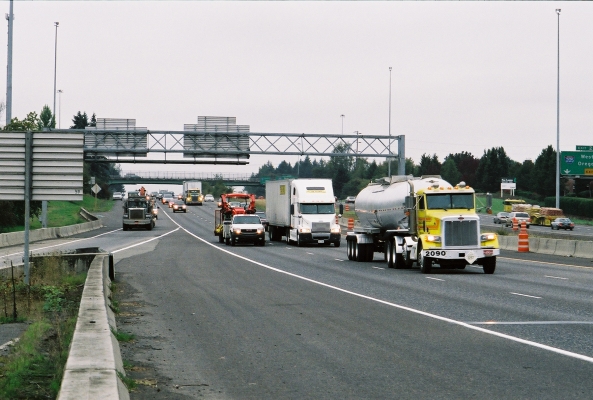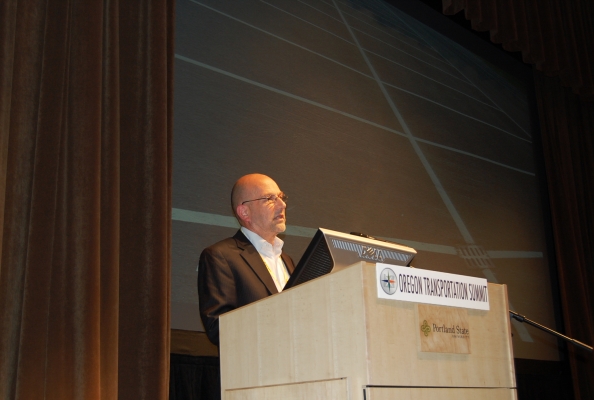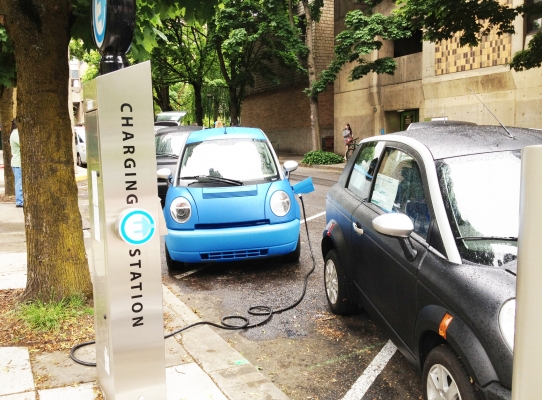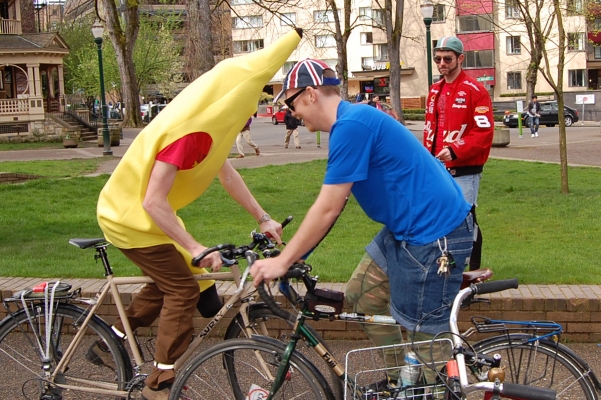Graduate student researcher Alex Bigazzi, of Portland State University, will present his work in Vietnam next week.
The Asia-Pacific Economic Cooperation (APEC) is hosting a transportation workshop in Ho Chi Minh city. The opportunity for Bigazzi to attend is the result of a spontaneous connection he made recently at a conference in Annapolis, Maryland, where he was giving a paper on truck-specific traffic management.
Large trucks contribute a large share of emissions, especially when traveling at a slow crawl through heavy traffic. Bigazzi’s work explores ways to mitigate the effects of this traffic congestion on air quality.
Bigazzi presented two papers at the 54th Annual Transportation Research Forum, which took place March 21-23 in Annapolis. One of them, “The Emissions Benefits of Truck-Only Lane Management,” offers a better understanding of the impacts of congestion on heavy-duty vehicles.
After a question-and-answer exchange, he was invited to present the same research in Vietnam’s largest city.
APEC’s 37th Transportation Working Group Meeting will take place April 8th through the 12th, 2013, at a Sheridan...
Read more





.bmp) the Institute of Transportation Engineers and Students in Transportation Engineering, she would like...
the Institute of Transportation Engineers and Students in Transportation Engineering, she would like...